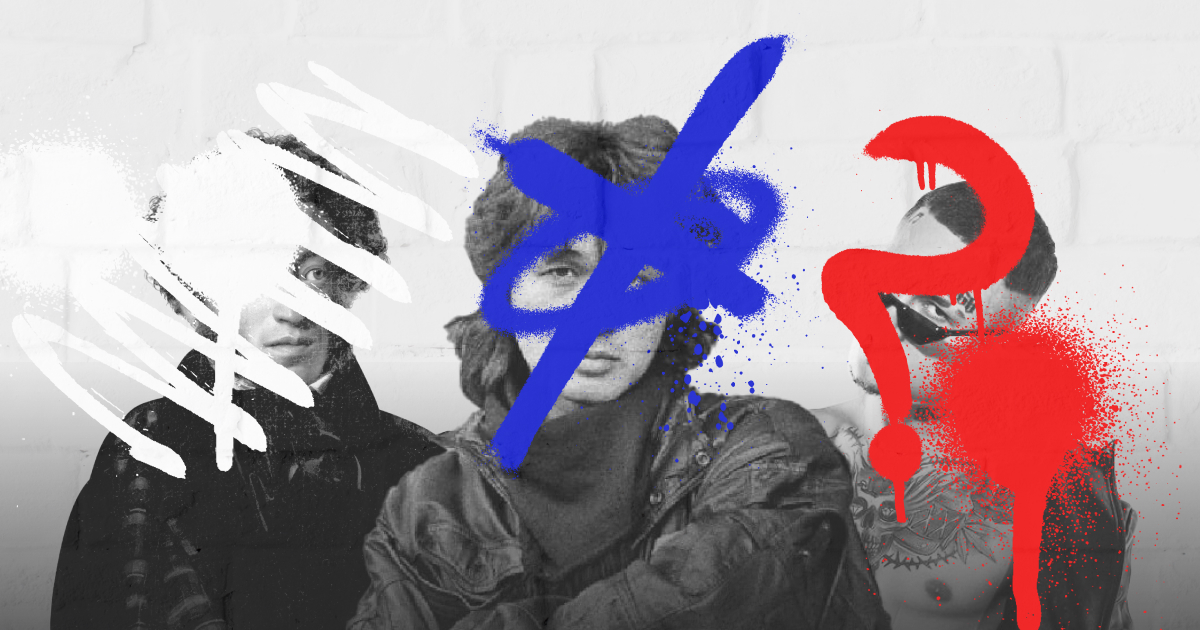Why prohibit Russian culture in Ukraine?
Kateryna Vovk

On June 19, the Verkhovna Rada supported the ban on public performances of Russian songs and their use on radio and television. The import of publishing products from Russia and Belarus, the publication and sale of books authored by citizens of the Russian Federation have also been banned.
"Svidomi" explains why such a ban does not violate the right to freedom of speech and is aimed at protecting the Ukrainian cultural sphere from propaganda sentiments in the cultural works of the aggressor country.
- MUSIC
The law prohibits the public reproduction of music by performers who are or were citizens of the aggressor state after 1991, except for former citizens of the Russian Federation and Belarus who are currently citizens of Ukraine.
In particular, the bill recommends increasing:
— up to 40% share of songs in the state language on the radio;
— up to 75% of the daily volume of conducting various broadcasts, including news-analytical blocks and entertainment programs in the state language.
The only exceptions are those performers who condemn Russia's full-scale invasion of Ukraine — the list of such musicians is maintained by the National Security and Defense Council of Ukraine, based on a previously submitted statement to the Security Service of Ukraine about the individual's position.
The Russian Federation musical product can create the illusion of the attractiveness of the Russian identity and the presence of common interests with the ideas of Russia. Throughout the whole period of Ukraine's independence, Russia has constantly tried to rally the Ukrainian market and make it a part of "Russian music" rather than a self-sustaining industry.
Thus for centuries Ukrainians were taught to follow Russia as a so-called "great, basic, influential culture". Therefore, the state's decision will minimize the risks of Russian hostile propaganda through music and will allow to increase the volume of the national musical product in the cultural space.
- BOOKS
The government has banned the import of publishing products from Russia, Belarus and the temporarily occupied territories of Ukraine. However, works in the Russian language from other countries will be allowed to be imported, but only after checking for anti-Ukrainian propaganda.
From 2023, books will be published and distributed only in the state Ukrainian language, the languages of the indigenous peoples of Ukraine and official EU languages.
The only exception is the books commissioned by the authorities in the interests of national security, repelling Russian aggression - they can be published in any language, without being included in the book distribution network.
The decision is conditioned by the need to protect the cultural and information space from Russian propaganda and the generally negative influence of Russia. While the fact is that in Russian literature, Ukrainians are usually written about as "Little Russians" and about the language is referred to as "dialect", there are also many other narratives that can harm Ukrainian society.
The Ukrainian book market was constantly flooded with works by Russian publishers who repeatedly wrote about the events in Ukraine after 2014 through the prism of Russian imperialism and spread a distorted view of everything Ukrainian.
For example, you can see the following phrases in the annotations of some Russian books:
"The naïve dream of a European paradise has blocked reality. How can one think that violence and revolution will create a new Ukraine?" In these words, the author condemns all the aspirations of Ukrainians for many decades to be a part of a democratic European society, among other things, no loyalty to Russia. ("The Tragedy of Ukraine: a Concentration Camp instead of Paradise?")
"... in 2014, our country [Russia – editor’s note] became a superpower again thanks to the courage and resilience of the Crimeans and the political will of the President of Russia." The author describes the occupation of Crimea, glorifying the Russian government. ("Russia. Crimea. History")
"This is 2020. Ukraine under Nazi rule. The Russian language is strictly forbidden, the population is forced to worship Bandera and Shukhevych, and any dissent is brutally suppressed." The author spreads propaganda that causes hatred for anything Ukrainian, although during all the times of Ukrainian independence, the Russian language was never banned and no one was forced to "worship". ("Fault Line")
Russian classics, in particular Pushkin and Dostoevsky, are also subject to exclusion. Oleksandra Koval, director of the Ukrainian Book Institute, said in an interview with "Interfax-Ukraine" that those representatives of Russian literature had laid the foundations of the "Russian World". Consuming the main ideas of these authors, people subconsciously believe that the mission of the Russian people is not to deal with their own lives and their country, but to constantly "save" someone against their will.
Ukrainian writer Oksana Zabuzhko explained that throughout the 20th century, Russian literature formed the idea that a criminal should be pitied, not condemned. We must feel sorry for him/her, because "there are no guilty people in the world" (Tolstoy).
All of the above arguments prove that the ban is not so-called "censorship", but is only a way to protect the Ukrainian people from the illusions of the Russian Federation, which the latter is trying to expand in any way it can. This is Ukraine's attempt to resist the information war waged by Russia against the Ukrainian people.


